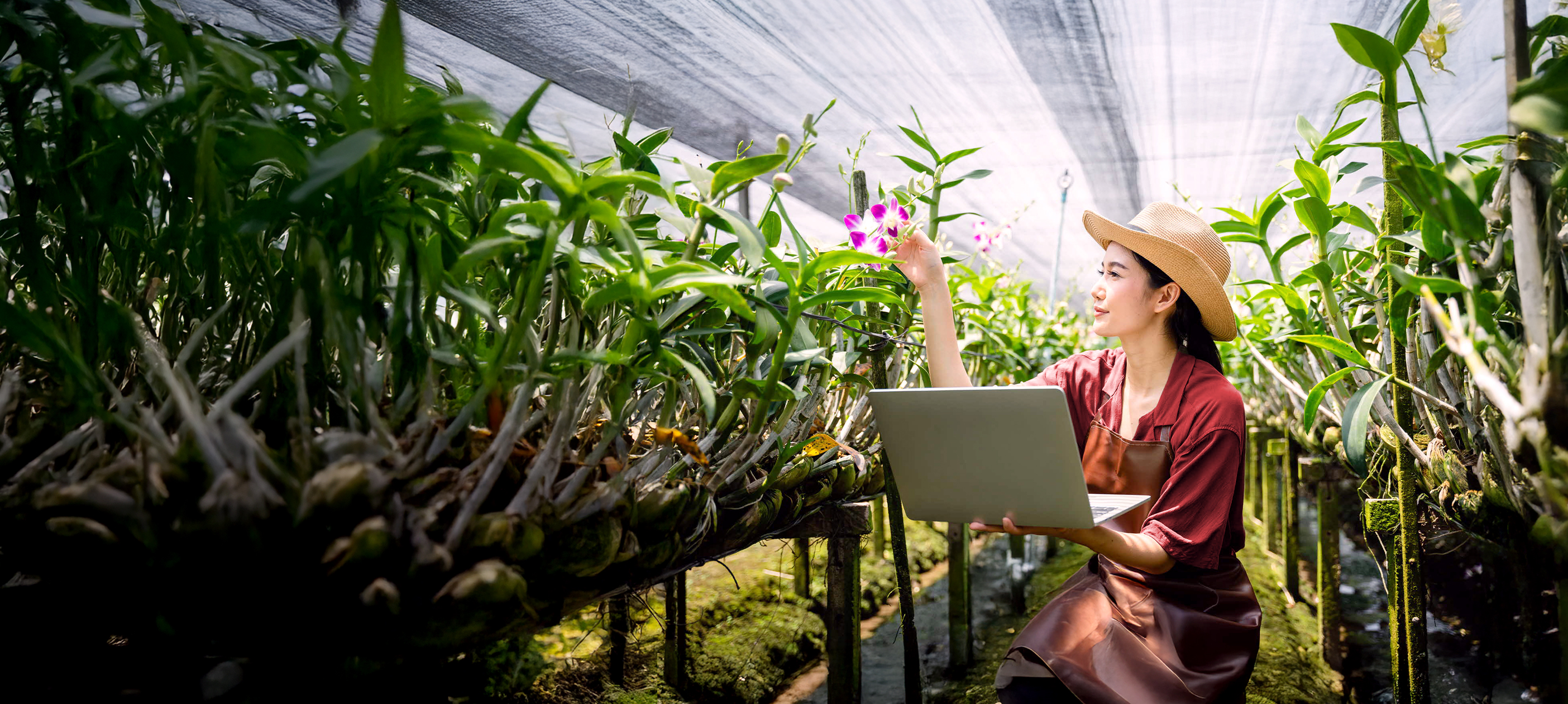Your guide to eco-friendly finance & investing
By Jermaine Koh
![]()
If you’ve only got a minute:
- Align your financial decisions with sustainability by questioning purchases, choosing eco-friendly alternatives and reducing unnecessary expenses.
- Adopt green practices like energy-efficient appliances, sustainable commuting, and conscious fashion choices to save money while reducing your environmental impact.
- Explore ESG funds, green bonds and sustainable investments that offer competitive returns while supporting environmentally responsible initiatives.
![]()
Environmental sustainability remains a critical priority for Gen Z, with 62% feeling worried or anxious about climate change, according to the 2024 Deloitte Global Gen Z and Millennial Survey.
A striking 60% are willing to pay more for environmentally sustainable products, and approximately 24% have already changed jobs due to environmental concerns, demonstrating their commitment to meaningful change.
Their climate consciousness is dramatically reshaping markets, with ESG-related products accounting for 56% of market growth and sustainable investments increasing by 73% in the past 5 years.
68% of Gen Z consumers prioritise brands with strong environmental credentials and 45% have reduced their personal carbon footprint through lifestyle modifications.
As you embark on your professional journey, you're presented with a unique opportunity to align your financial objectives with eco-conscious living. This isn't just a trendy choice but a strategic move towards long-term professional success and global impact.
By focusing on eco-financing from the outset of your career, you can position yourself for success in an increasingly eco-conscious financial landscape.
This guide will help you navigate the intersection of sustainability and financial management, empowering you to make informed decisions that benefit both your career and the environment.
The green-money connection
At first glance, sustainability and financial planning might seem like separate realms. However, they're more intertwined than you might realise. Sustainable choices often lead to long-term savings, while smart financial decisions can enable more eco-friendly lifestyle options.
Understanding this relationship is crucial, especially if you wish to make a positive impact on both your finances and the environment.
1. Mindful consumption
The cornerstone of both sustainable living and sound financial planning is mindful consumption. It's about questioning the necessity and impact of each purchase, rather than buying impulsively or out of habit. By thoughtfully evaluating purchases, you can make more intentional choices that reduce waste and optimise spending.
Before making a purchase, ask yourself:
- Do I really need this?
Consider whether the item is essential or just a want and assess existing similar possessions you already own. Next, evaluate how frequently you'll use the product.
- Is there a more sustainable alternative?
Research the environmental impact of different brands or products and explore alternatives with minimal packaging. Consider second-hand or sharing economy options (car-sharing for example).
- How does this align with my financial goals?
Check if the purchase fits within your budget.
Analyse long-term cost implications (maintenance, energy use, etc.) and if the purchase is within budget. Alternatively, think about whether the money could be better used elsewhere (savings, investments, etc.)

2. The power of the 3 R's in finance
Applying the principles of “Reduce, Reuse, and Recycle” to your finances can lead to significant benefits.
- Reduce
Start by cutting down on unnecessary expenses and resource use by buying products with minimal packaging. Instead of driving, walk or bike for short trips. For instance, bring along a reusable water bottle to reduce plastic cup usage. For ladies, opt for reusable period products such as menstrual cups.
- Reuse
Choose and/or purchase second-hand items such as clothes, furniture, books and electronics. Consider donating outgrown clothes to friends or charity and engage in car sharing services to reduce traffic and emissions.
- Recycle
Repurpose old clothes as cleaning rags and use old glass jugs and containers as vases for plants or even storage for random knick-knacks.

Practical steps for the eco-savvy saver
1. Green commuting
Car ownership involves a complex web of expenses beyond the initial purchase price.
Non-negotiable costs like road tax and car insurance can easily amount to thousands of dollars annually while variable costs such as parking, ERP, and fuel range from S$300 to S$700 monthly.
Hidden expenses including maintenance, unexpected repairs, and potential fines can dramatically increase your total expenditure. For instance, a comprehensive engine overhaul, may cost tens of thousands of dollars, while a single major repair might exceed your annual public transport expenses (annual bonus even!).
Adopting green commuting options such as public transportation, cycling or walking, offers multiple benefits and can potentially lead to substantial annual savings while reducing your carbon footprint.
It also provides productive commute time (extra time for podcasts or reading) for personal development, improves physical health and lowers long-term medical expenses.
If vehicle ownership is necessary, consider fuel-efficient or electric car models and explore green financing options.
Utilise tools like DBS LiveBetter to track your carbon footprint and make informed transportation decisions that align with your financial and sustainability goals.

2. Energy-efficient living
Energy efficiency isn't just an environmental strategy - it's a smart financial approach. Government data reveals that strategic appliance choices can yield substantial long-term savings. The national Energy Label system provides clear guidance, with more ticks indicating greater efficiency.
Air-conditioning systems, which consume significant household energy, present a prime opportunity for improvement. By upgrading to energy-efficient models, we can collectively reduce consumption by 2% to 5%. Even a simple temperature adjustment of 1°C can generate immediate energy savings.
Consider investing in energy-efficient appliances (can lead to substantial long-term savings, despite higher upfront costs) and adopt energy-saving habits:
- LED bulbs can save you S$100-S$200 annually on electricity bills
- Energy-efficient air conditioners can reduce your cooling costs by 30% to 50%
Pro tip: Switch to a green electricity provider to enjoy savings and reduce your carbon footprint, especially if you're working from home more often.
Effective energy management combines technological investment with mindful habits. Monitor your electricity usage, choose green electricity providers and continuously educate yourself about emerging energy-efficient technologies.
Check out DBS Home Marketplace to enjoy cost savings while minimising your carbon footprint.

3. Sustainable fashion choices
Fast fashion is both a financial drain and an environmental hazard due to textile waste.
Key statistics illustrate the severity of the issue:
- 92 million tonnes of textile waste produced annually, expected to reach 134 million tonnes by 2030
- 10% of global carbon emissions attributed to the fashion industry
- 85% of textiles end up in landfills each year
- 500,000 tonnes of microfibers released into oceans annually, equivalent to 50 billion plastic bottles
The solution lies in conscious consumption. By adopting a "less is more" approach, you can play your part and reduce the environmental impact by:
- Buying fewer but higher-quality items that last longer
- Choose sustainable and recycled materials
- Repair and upcycle existing apparel
- Participate in clothing swaps or buy second-hand pieces
- Support brands committed to sustainable practices
- Rent instead of purchasing
Every piece of clothing you don't buy is a small victory for the planet. By making thoughtful choices and reducing overall consumption, you can help mitigate the fashion industry's environmental damage and promote a more sustainable future.
4. Eco-Friendly Habits
Adopting eco-friendly habits can extend beyond individual consumption:
- Grow your own herbs or participate in a community garden.
- Spend time on low-energy activities like reading or playing physical games (board, card games), meditation and yoga and digital journaling/sketching.
- During celebrations such as Chinese New Year, educate family members about using digital angpao instead of traditional red packets. Services like DBS Digital Gifts allow you to send eGifts instantly while maintaining cultural traditions sustainably.
By choosing digital gifts, you:
- Avoid unnecessary waste
- Reduce CO2 emissions
- Provide instant, personalised experiences
- Support sustainable consumption
Investing in a greener future
As you start to accumulate savings, consider aligning your investments with your values:
1. ESG investing
Look into Environmental, Social, and Governance (ESG) funds. These investments focus on companies with sustainable practices and strong ethical standards.
Many ESG funds have shown competitive returns compared to traditional investments. For example, the MSCI World ESG Leaders Index has outperformed the MSCI World Index over the past 5 years.
2. Green Bonds
Singapore has been at the forefront of green finance in Asia. Consider investing in green bonds that fund environmentally friendly projects.
These can offer stable returns while contributing to sustainable development.
3. Sustainable startups
If you're interested in higher-risk, higher-reward investments, research local startups focusing on sustainability, your investment could support innovative solutions to environmental challenges.
The ripple effect of your choices
Sustainable living and smart money management are journeys, not destinations. Start with small steps by:
- Tracking your expenses and identifying areas where you can make more sustainable choices.
- Set both financial and sustainability goals for the year (Maybe aim to reduce your plastic use and buy fewer clothing this month?)
- Educate yourself continuously on both personal finance and environmental issues. Follow social media channels and subscribe to newsletters from reputable sources.
- Join communities or groups focused on sustainable living and financial literacy.
You have the power to shape not only your financial destiny but also to be part of a global movement towards a more sustainable world. Are you ready to take on the challenge of becoming a financially savvy, eco-conscious professional? Remember, change starts today!
Ready to start?
Need help selecting an investment? Try ‘Make Your Money Work Harder’ on digibank to receive specific investment picks based on your objectives, risk profile and preferences.
Invest with DBS Invest with POSB
Speak to the Wealth Planning Manager today for a financial health check and how you can better plan your finances.
Disclaimers and Important Notice
This article is meant for information only and should not be relied upon as financial advice. Before making any decision to buy, sell or hold any investment or insurance product, you should seek advice from a financial adviser regarding its suitability.
All investments come with risks and you can lose money on your investment. Invest only if you understand and can monitor your investment. Diversify your investments and avoid investing a large portion of your money in a single product issuer.
Disclaimer for Investment and Life Insurance Products








That's great to hear. Anything you'd like to add? (Optional)
We’re sorry to hear that. How can we do better? (Optional)